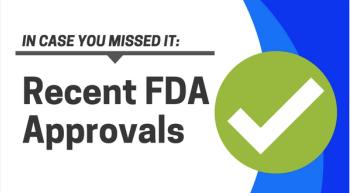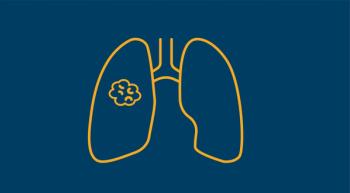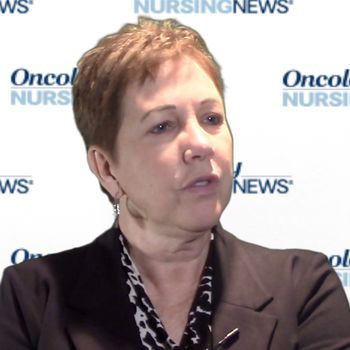
Nurses don’t only save lives – they change them. For National Nurses’ Week, survivors and caregivers shared words of appreciation for their oncology nurses.

Nurses don’t only save lives – they change them. For National Nurses’ Week, survivors and caregivers shared words of appreciation for their oncology nurses.

The vaccine BVAC-C demonstrated durable antitumor activity in patients with HPV 16– or HPV 18–positive recurrent cervical cancer, according to findings presented at the 2020 AACR Virtual Annual Meeting I.

The FDA granted an accelerated approval to capmatinib for the treatment of adults with metastatic non-small cell lung cancer with a mutation that leads to MET exon 14 skipping (METex14).

Over the last few weeks, the FDA was busy reviewing and approving new cancer treatments.

The FDA has added 3 months to the review period for a biologics license application (BLA) for lisocabtagene maraleucel (liso-cel) for the treatment of adult patients with relapsed/refractory large B-cell lymphoma (LBCL) after at least 2 prior therapies. The extension will allow the agency to review additional data provided by Bristol Myers Squibb, the manufacturer of the anti-CD19 CAR T-cell therapy.

More services will now be covered by the Centers for Medicare & Medicaid Services.

A reduction in patient-reported symptomatic adverse events (AEs) was observed with intensity-modulated radiotherapy (IMRT) compared with standard radiotherapy in patients with cervical or endometrial cancer, whereas no difference was observed with regard to clinician-reported AE.

Our recent webinar discussed how COVID-19 is affecting oncology nurses.

Many nurses may be seeing patients outside their specialty, as the COVID-19 pandemic continues to cause stress for patients and providers.

The future looks to be defined by essential clinical trials.

In the adjuvant setting, circulating tumor DNA (ctDNA) may be a biomarker for the detection of post-surgical minimal residual disease (MRD) and for determining the clonality of relapsing disease.

The FDA approved daratumumab and hyaluronidase-fihj (Darzalex Faspro) for the treatment of adults with newly diagnosed relapsed/refractory multiple myeloma.

The FDA granted priority review to a new drug application for CC-486 for the maintenance treatment of adult patients with acute myeloid leukemia based on efficacy and safety results from the pivotal phase III QUAZAR AML-001 study.

Each month, we take a look back at the most popular Oncology Nursing News® stories. Here are the top 5 stories from April 2020.

Though the use of next-generation sequencing (NGS) may not have immediate clinical implications for patients with sarcoma, it can provide valuable information for data collection and position patients for ongoing clinical trials that have the potential to push the needle forward, explained Gina Z. D'Amato, MD.

The pandemic model of patient care is necessary, but exhausting, which leads nurses to moral distress.

The FDA approved niraparib for the maintenance treatment of adults with advanced epithelial ovarian, fallopian tube, or primary peritoneal cancer who have a complete or partial response to frontline platinum-based chemotherapy.

Two researchers spoke about the recent FDA approval for this patient population, and what more needs to be done in the space.

A minimally invasive blood test has been found to be feasible to safely detect several types of cancers in patients without a history of malignancies.

The FDA has granted an accelerated approval to an updated dosing schedule for pembrolizumab (Keytruda) to include an every-6-weeks option at 400 mg across all indications in adult patients.

There is far less patient education for oral agents, such as CDK4/6 inhibitors for breast cancer, as there is for chemotherapy. This is a major issue, explained Patricia Jakel, MN, RN, AOCN, advanced practice nurse at UCLA's solid tumor program and co-editor in chief of Oncology Nursing News.

Treatment with talazoparib (Talzenna) did not demonstrate a statistically significant overall survival (OS) benefit in patients with BRCA1/2-mutated metastatic HER2-negative breast cancer, according to updated findings from the phase 3 EMBRACA trial (NCT01945775).1 However, lead author Jennifer Litton, MD, said that there is still reason to believe treatment with the PARP inhibitor can improve OS.

The FDA has granted a breakthrough therapy designation to mobocertinib for the treatment of patients with EGFR exon 20–mutant non–small cell lung cancer.

While keeping patients at home decreases their risk of contracting the virus, it can also create challenges and safety issues when it comes to procedures like infusions.

Olaparib significantly improved overall survival versus abiraterone acetate or enzalutamide in patients with metastatic castration-resistant prostate cancer and BRCA1/2 or ATM mutations.

Containment strategies for patients at greatest risk of developing severe complications from COVID-19 are evolving, says Allyson Ocean, MD.

Cancer care may never be the same again after the COVID-19 pandemic. In a recent webinar, 2 oncology nurses discussed their experiences.

Combined treatment with brentuximab vedotin and nivolumab could provide a more tolerable option for older patients with classical Hodgkin lymphoma.

CAR T-cell therapy is poised to have a significant impact on the treatment of patients with relapsed/refractory multiple myeloma, says Nina Shah, MD.

The FDA has granted an accelerated approval to sacituzumab govitecan-hziy for the treatment of adult patients with pretreated metastatic triple-negative breast cancer.